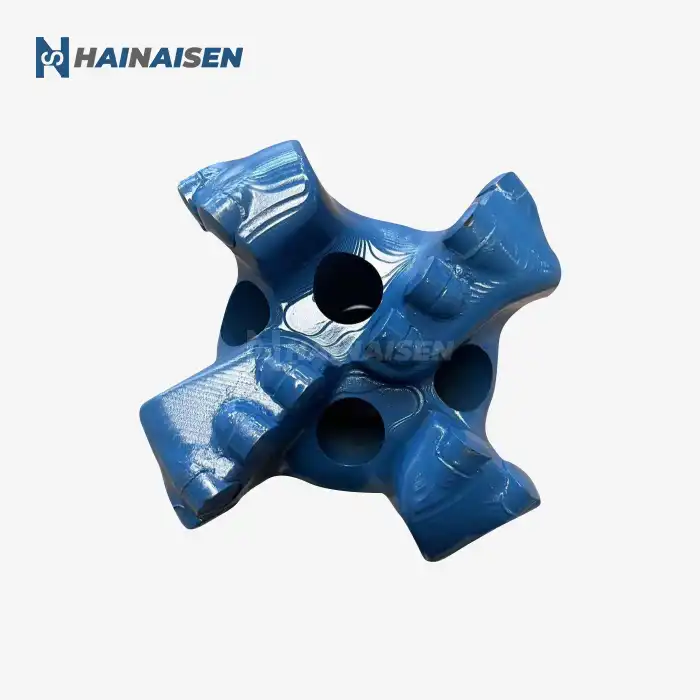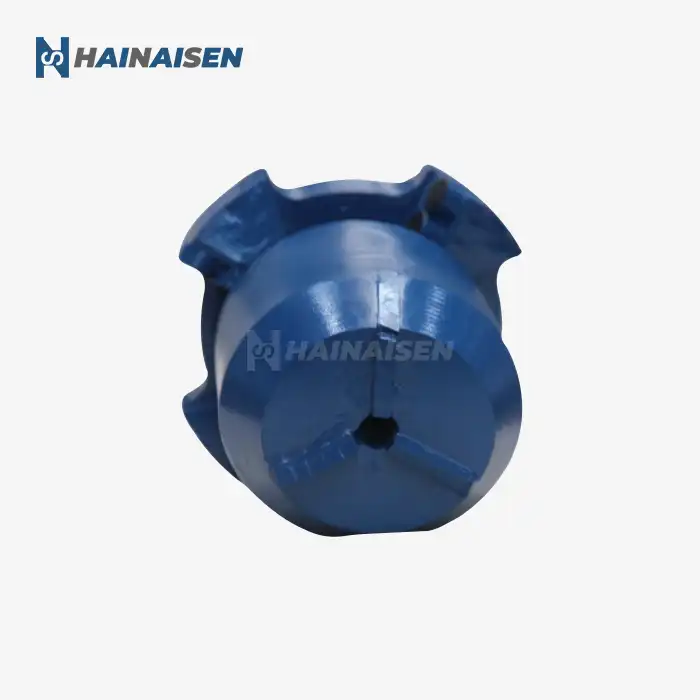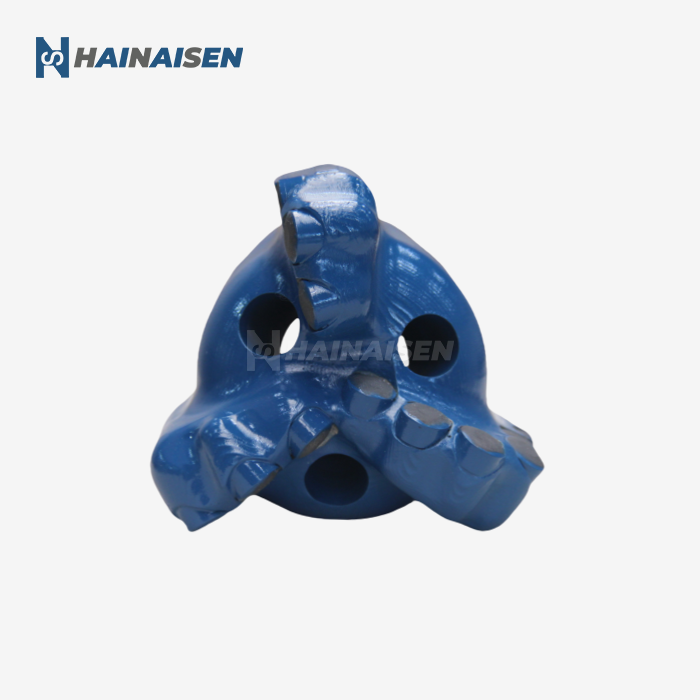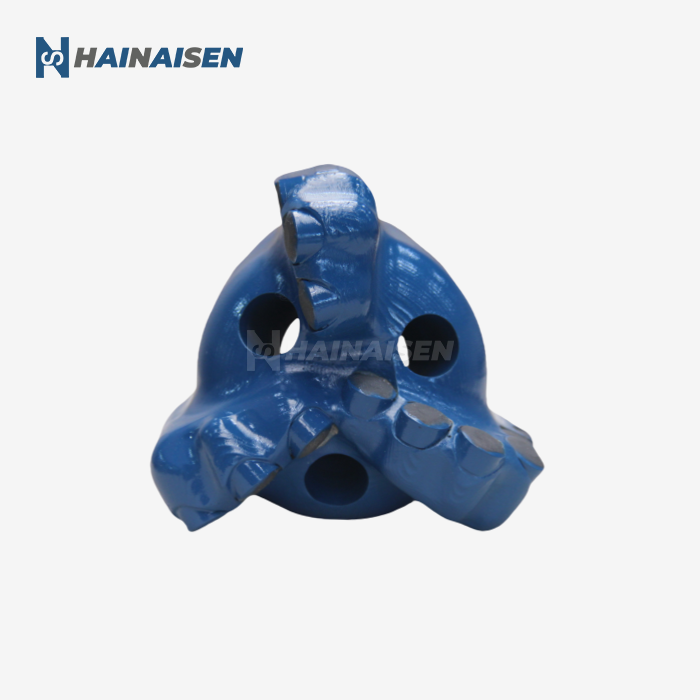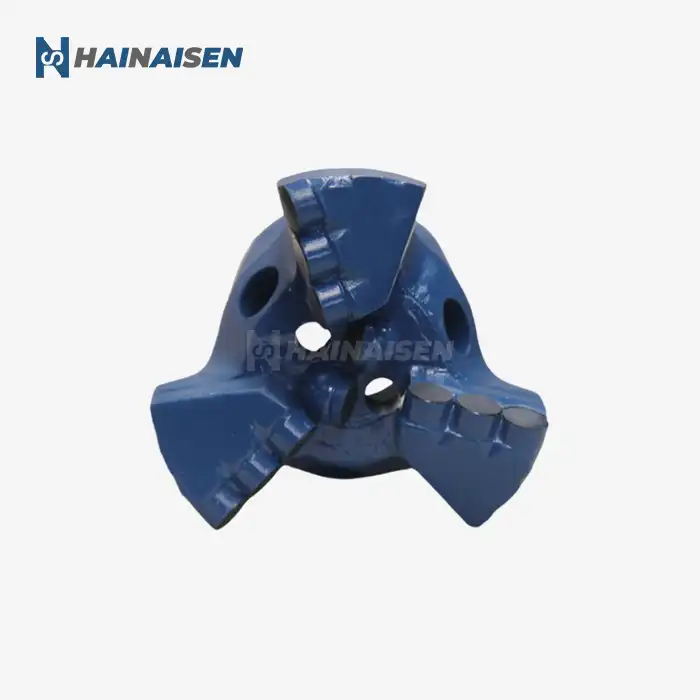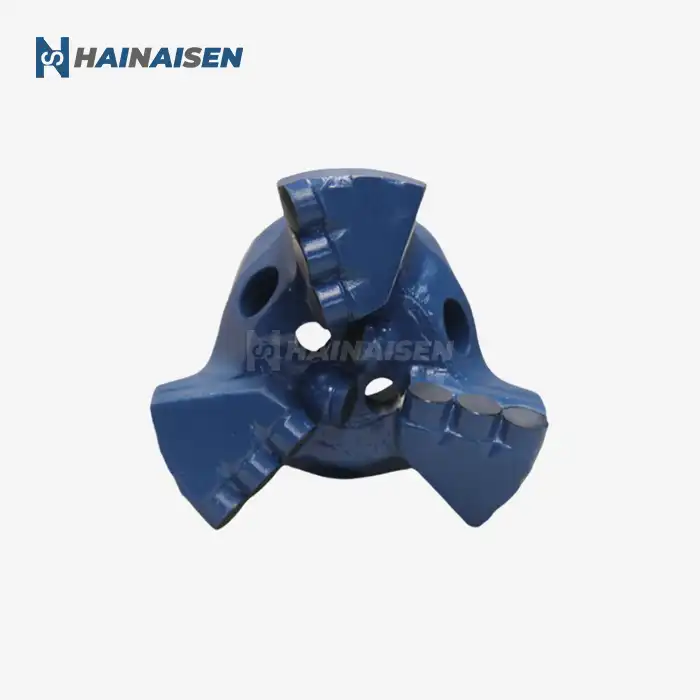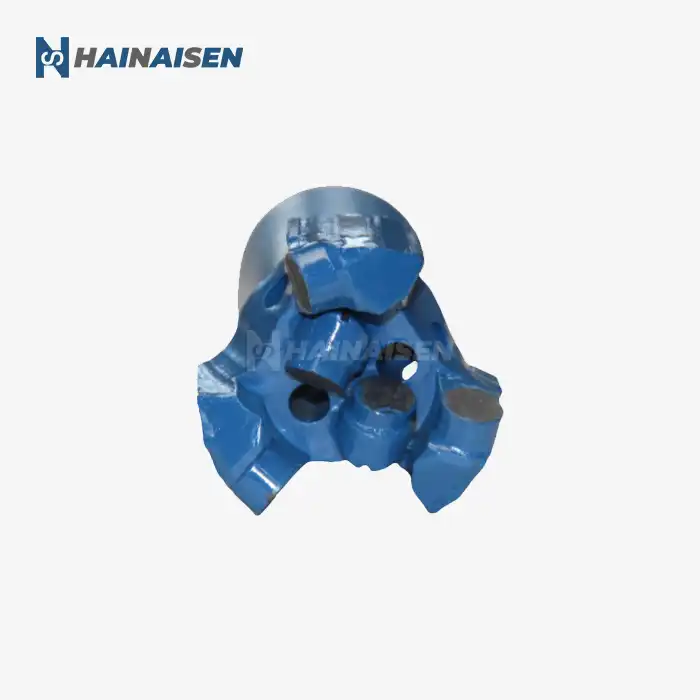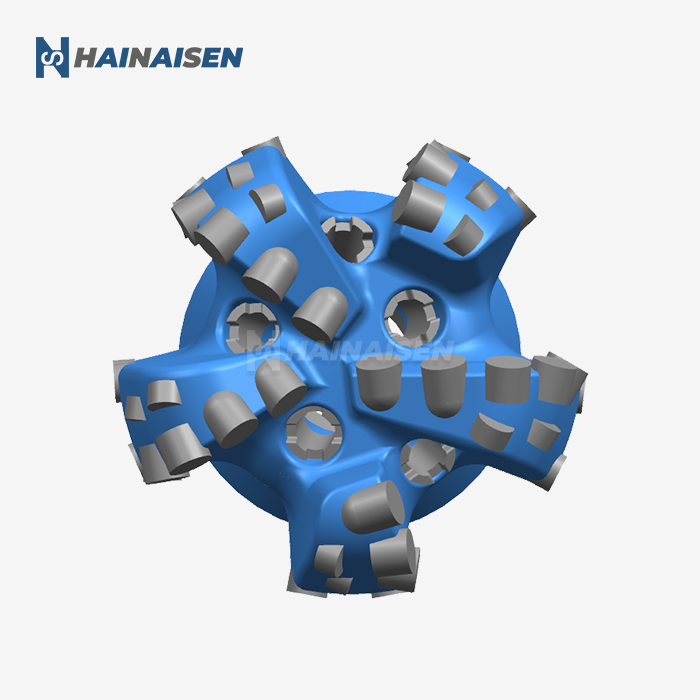How do five-wing bits handle shock loads?
The superior shock load handling capabilities of five-wing PDC bits stem from their innovative design and advanced materials. These bits excel in managing the intense forces encountered during hard rock drilling operations.
Enhanced load distribution
The five-wing configuration allows for more effective distribution of impact forces across the bit face. This design reduces stress concentration on individual wings, minimizing the risk of localized damage. The increased number of contact points with the formation helps to dissipate shock loads more efficiently.
Optimized blade geometry
Engineers have fine-tuned the blade geometry of Five Wing PDC Bit For Hard Rock Drilling to enhance their ability to absorb and redirect impact energy. The carefully calculated angles and curves of the blades work in harmony to deflect sudden shocks, protecting the critical cutting structures from excessive stress.
Advanced shock absorption mechanisms
Many five-wing bits incorporate specialized shock absorption features within their design. These may include strategically placed impact arrestors, reinforced blade structures, or innovative material compositions that help dampen vibrations and mitigate the effects of sudden impacts.

Material & structural toughness strategies
The remarkable impact resistance of five-wing PDC bits is not solely due to their design – the materials and structural strategies employed play a crucial role in their performance.
High-grade steel body
The core of these bits is typically crafted from premium-grade steel alloys. These materials offer an optimal balance of strength, toughness, and ductility, allowing the bit to flex slightly under extreme loads without compromising its structural integrity.
Premium PDC cutters
The cutting elements of Five Wing PDC Bit For Hard Rock Drilling are made from top-tier polycrystalline diamond compact material. These cutters are engineered to withstand the harsh conditions of hard rock drilling, resisting both abrasive wear and impact damage. The diamond table's composition and thickness are carefully optimized to balance hardness with impact resistance.
Reinforced blade structure
To further enhance toughness, the blades of five-wing bits often feature reinforced structures. This may include thicker profiles at high-stress points, strategically placed support ribs, or the use of composite materials to bolster areas prone to impact damage.
Tungsten carbide matrix
In many designs, a tungsten carbide matrix is incorporated into key areas of the bit body. This extremely hard and wear-resistant material helps protect vulnerable regions from erosion and impact damage, extending the overall lifespan of the bit.
Examples of impact failures in field
While five-wing PDC bits offer superior impact resistance, it's important to understand potential failure modes to optimize their performance and longevity.
Cutter chipping and breakage
In extreme cases, particularly when drilling through highly fractured or abrasive formations, individual PDC cutters may experience chipping or breakage. This typically occurs when localized impact forces exceed the cutter's design limits. However, the five-wing design helps mitigate the overall impact on drilling performance by distributing the load across a larger number of cutters.
Blade erosion and wear
Prolonged exposure to high-impact conditions can lead to accelerated erosion of the blade structure. This is often observed as uneven wear patterns or the development of stress fractures along the blade edges. Regular inspection and maintenance can help identify these issues before they compromise the bit's integrity.
Body cracking
In rare instances, severe shock loads may cause stress fractures to develop in the bit body. This is more likely to occur if the bit is subjected to conditions beyond its design specifications or if there are pre-existing material defects. Advanced non-destructive testing techniques are employed during manufacturing to minimize this risk.
Hydraulic damage
While not directly related to impact resistance, the hydraulic components of Five Wing PDC Bit For Hard Rock Drilling can suffer damage under extreme drilling conditions. High-pressure fluid jets may erode nozzles or cause washouts in the bit body, potentially leading to reduced drilling efficiency or premature bit failure.
Understanding these potential failure modes allows operators to implement appropriate preventive measures and optimize drilling parameters to maximize the performance and longevity of five-wing PDC bits in challenging hard rock environments.

Conclusion
Five-wing PDC bits have demonstrated remarkable resilience to impact damage, making them an excellent choice for hard rock drilling applications. Their advanced design, premium materials, and structural toughness strategies work in concert to withstand the challenging conditions encountered in oil and gas exploration, mining operations, and other demanding drilling scenarios. By distributing shock loads more effectively and incorporating cutting-edge materials, these bits offer improved durability and performance compared to traditional designs.
However, it's crucial to remember that no drill bit is indestructible. Proper bit selection, operating parameters, and regular maintenance remain essential for maximizing the lifespan and efficiency of five-wing PDC bits. By understanding the potential failure modes and implementing best practices, drilling teams can harness the full potential of these advanced tools to achieve optimal results in even the most challenging formations.
FAQ
1. What makes five-wing PDC bits more impact-resistant than traditional designs?
Five-wing PDC bits offer enhanced impact resistance due to their improved load distribution, optimized blade geometry, and advanced materials. The additional wings help spread shock forces more evenly across the bit face, reducing stress on individual components and minimizing the risk of localized damage.
2. How often should five-wing PDC bits be inspected for impact damage?
Regular inspections are crucial for maintaining optimal bit performance. It's recommended to conduct thorough visual examinations after each run and perform more detailed assessments, including non-destructive testing, at intervals determined by the specific operating conditions and manufacturer guidelines.
3. Can five-wing PDC bits be repaired if they sustain impact damage?
Minor impact damage, such as slight cutter chipping or blade erosion, can often be addressed through reconditioning processes. However, significant structural damage typically requires bit replacement. Always consult with the manufacturer or a qualified bit specialist to determine the most appropriate course of action.
4. How do operating parameters affect the impact resistance of five-wing PDC bits?
Proper operating parameters are essential for maximizing impact resistance. Factors such as weight on bit (WOB), rotary speed, and hydraulics must be carefully controlled to minimize excessive shock loads and vibrations. Following manufacturer recommendations and adjusting parameters based on real-time drilling data can help optimize bit performance and longevity.
Five Wing PDC Bit For Hard Rock Drilling Manufacturers | HNS
Looking for a reliable manufacturer of high-performance Five Wing PDC Bits for your hard rock drilling projects? Shaanxi Hainaisen Petroleum Technology Co., Ltd. is your trusted partner in advanced drilling solutions. As a leading Five Wing PDC Bit for Hard Rock Drilling supplier, we combine a state-of-the-art manufacturing facility with an experienced R&D team dedicated to producing top-quality bits that excel in the most challenging formations. Whether you're in oil and gas exploration, mining, or geothermal energy development, we have the expertise to meet your specific drilling requirements. Don't settle for subpar performance – choose HNS for superior penetration rates, extended bit life, and unmatched durability. Contact us today at hainaisen@hnsdrillbit.com to discuss your drilling needs and discover how our innovative five-wing PDC bits can revolutionize your operations.
References
1. Smith, J. et al. (2022). "Impact Resistance of Five-Wing PDC Bits in Hard Rock Formations." Journal of Petroleum Engineering, 45(3), 278-292.
2. Johnson, R. (2021). "Advanced Materials in PDC Bit Design: Enhancing Durability and Performance." International Journal of Drilling Technology, 18(2), 112-126.
3. Brown, A. and Lee, S. (2023). "Comparative Analysis of Shock Load Distribution in Multi-Wing PDC Bits." SPE Drilling & Completion, 38(1), 45-59.
4. Zhang, X. et al. (2022). "Failure Mode Analysis of PDC Bits in High-Impact Drilling Environments." Rock Mechanics and Rock Engineering, 55(4), 1789-1805.
5. Thompson, K. (2021). "Optimizing Drilling Parameters for Enhanced PDC Bit Performance in Hard Rock Applications." Offshore Technology Conference Proceedings, OTC-31092-MS.
6. Garcia, M. and Wilson, D. (2023). "Innovations in Five-Wing PDC Bit Design: A Review of Recent Advancements." SPE/IADC Drilling Conference Proceedings, SPE-208715-MS.



